#D.D. Jackson
Explore tagged Tumblr posts
Text
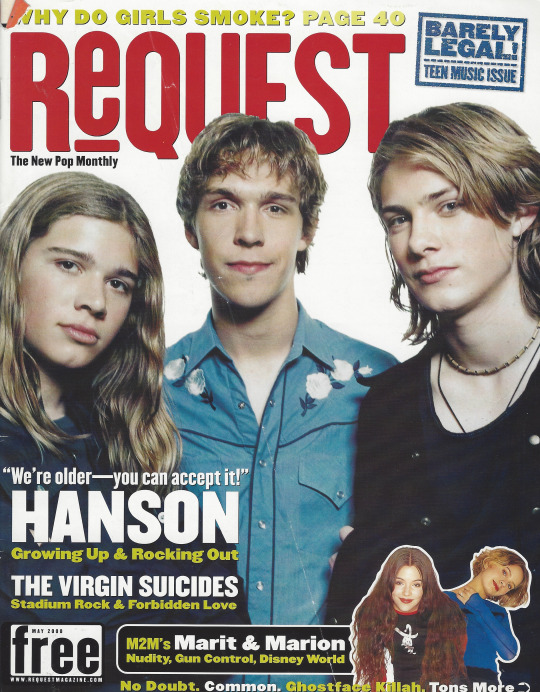
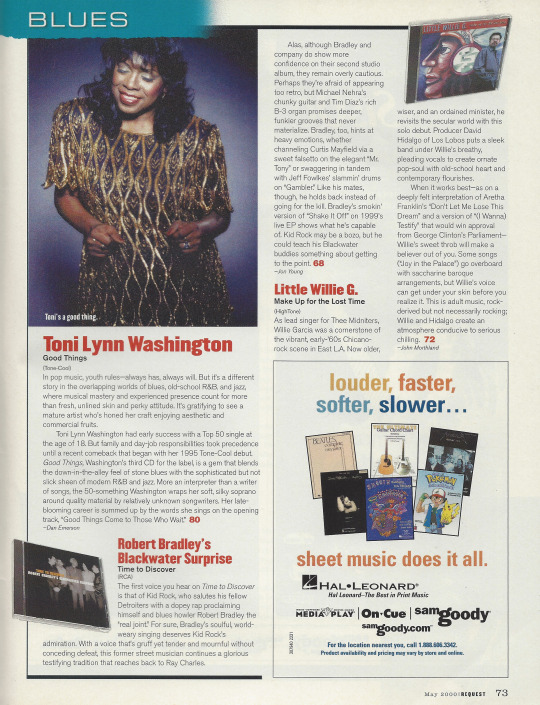
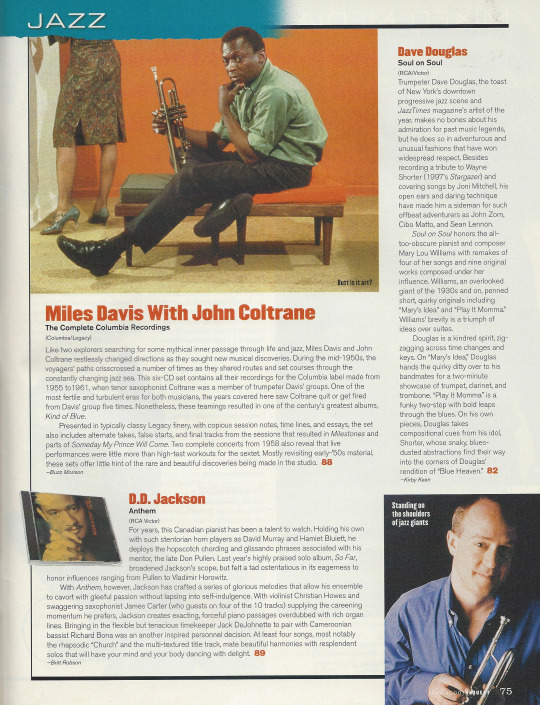
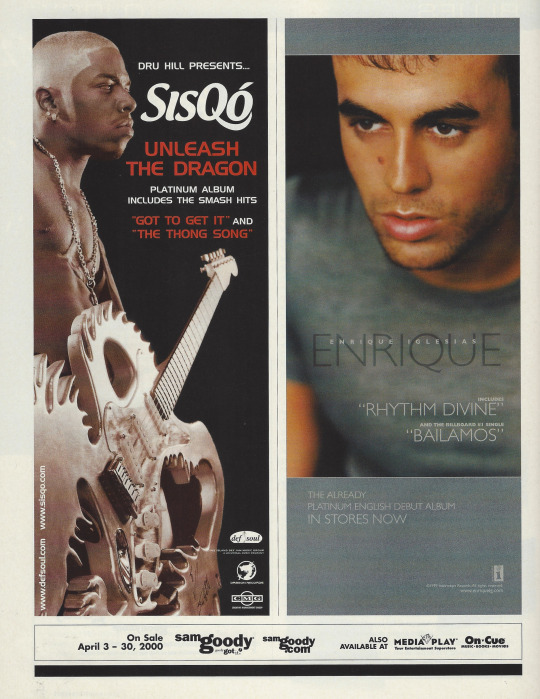
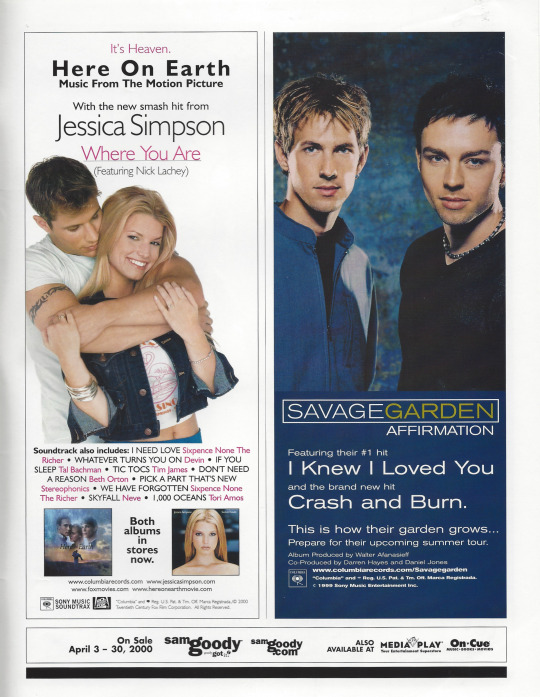
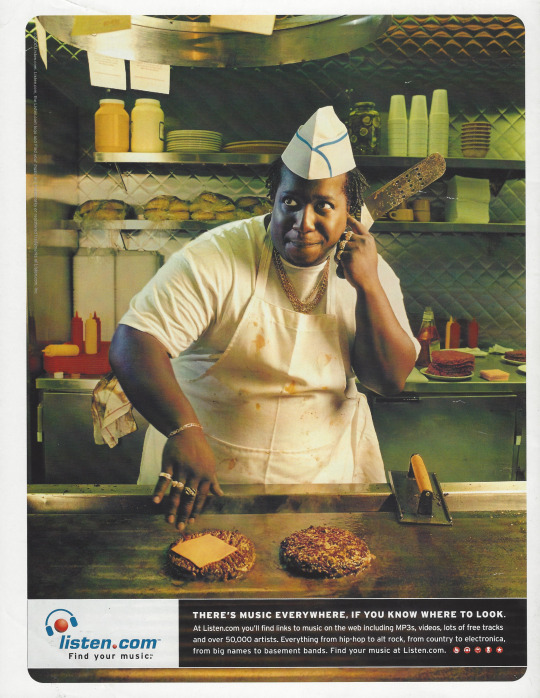
From Request, May 2000
#request magazine#2000#2000s#hanson#toni lynn washington#robert bradley#little willie g#miles davis#john coltrane#d.d. jackson#dave douglas#sisqo#enrique iglesias#jessica simpson#nick lachey#savage garden
6 notes
·
View notes
Text
Emotion achieved: empathy (only for a fictional character though)
#djxmd#d.d.........#episode 87 jacksons diary.#the whole time i was feeling rly bad for exer bc exer said “i canngo to therapy. i love you” to his dad. but his dadz face looked soulles#and for some reasjn mt brain is making me think that means his dad DOESNT want exer to improve or thinks he doesnt deserve love ... WHICH IS#WRONG !! “i need to find a way to help both jackson and exer” - harry campell. direct quote#but still. it made me FEEL LIKE he hated his son for some reason (WHICH IS UNTRUE)#which made ke feel bad for exer? and i accidentally thought of me and my own parents. like “lmao what kf your mom doesnt think you deserve-#- love but js only pretending you do“. and i got really sad and i cried. idk why i dojt have mommy issues just#uhxkx. mannnnn.#i LOVE HARRY BTW !!! AND HIS FATHER-SON RELATIONSHIP W EXER#MY BRAIN JUST MAKES ME THINK IRRATIONAL THINGS SOMETIMES#jacksons diary#webtoon#exer campbell
10 notes
·
View notes
Text
Historic Works on the Subject of Corporate Worship
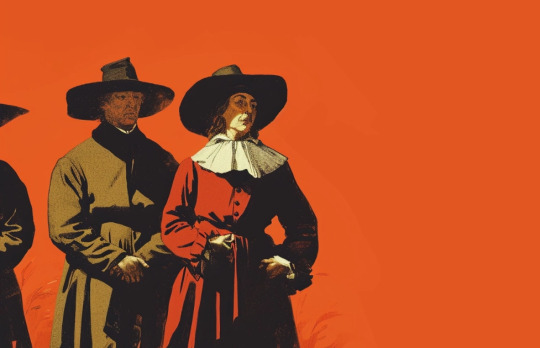
How Did the Early Church Worship?
Most Christians don’t care to study Christian history and historical theology surrounding worship because they “feel” it takes away certain things they like in their church services. Are you interested in the historic Christian faith and its view on worship? God is to be worshiped according to His commands. God alone determines the manner in which sinners are to approach Him; and it is only accomplished through Jesus Christ, in the power of the Spirit, according to His word.
The early church worshipped in a specific manner according to God’s word. Christ and his commands are the rule by which Christians gather together for worship. We call this the Regulative Principle of Worship.
See these reformed liturgies here (Calvin, Knox and Puritan comparisons) See Calvin’s Strassborg Liturgy here.
Historic Works on the Subject of Corporate Worship
Gospel Worship, by Jeremiah Burroughs, a modernized version.
The Christian’s Charge Never to Offend God in Worship, by John Forbes
How to Serve God in Private and Public Worship, John Jackson
True Worship and the Consequences of Idolatry, by John Knox
A Christian’s True Spiritual Worship to Jesus Christ, by Stephen Charnock
The Glory of Evangelical Worship, by John Owen
The Simplicity of Holy Worship by John Wilson
Vain Imaginations in the Worship of God by Samuel Willard, Jonathan Dickinson, Joshua Moodey, Nathan Stone and Jonathan Edwards
The True Psalmody by the Reformed Ministers
A Gospel-Ordinance Concerning the Singing of Scripture Psalms, Hymns and Spiritual Songs by Cuthbert Sydenham
Gospel Music: or the Singing of David’s Psalms by Nathaniel Holmes
Singing of Psalms a Gospel Ordinance by John Cotton
Singing of Psalms the Duty of Christians by Thomas Ford
Reformed and Puritan printed works on corporate worship can be found HERE.
Some other articles of importance on the RPW or Public Worship:
Public Worship Preferred Before Private by David Clarkson (1622-1686) Observations on Personal Covenanting by Thomas Manton (1620-1677) Personal Covenanting by Thomas Manton Part 1 (1620-1677) Personal Covenanting by Thomas Manton Part 2 (1620-1677) Reframing Presbyterian Worship: A Critical Survey of the Worship Views of John M. Frame and R. J. Gore, by Frank J. Smith, Ph.D, D.D. and David C. Lachman, Ph.D. Westminster and Worship Examined: A Review of Nick Needham by Rev. Matthew Winzer
6 notes
·
View notes
Link
0 notes
Text


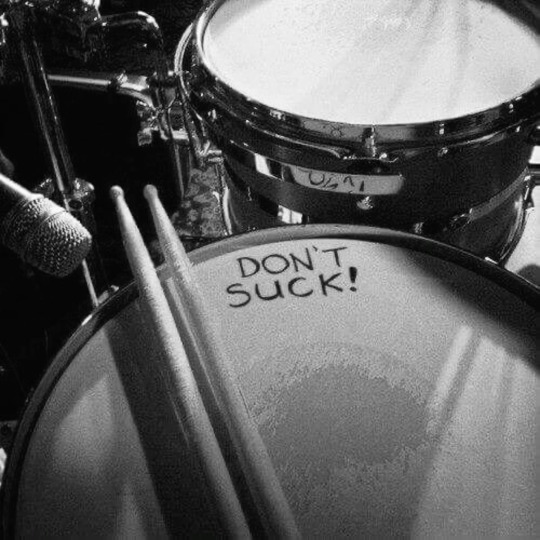
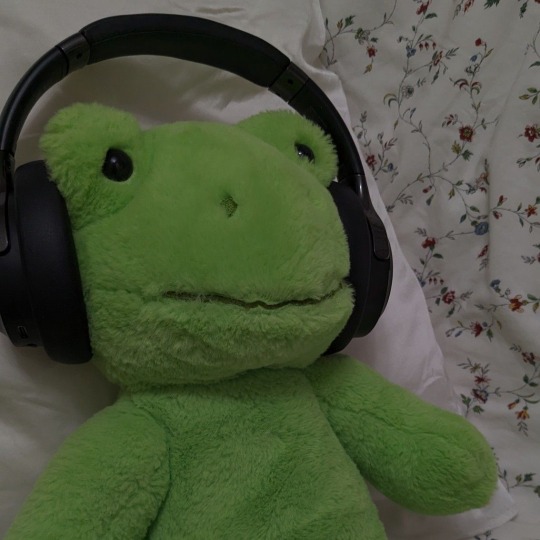
࿆࿆⸅ྃ⸄࿆⸅⸄῁̟࿆⸅ྃ⸄῁࿆⸅⸄῁̟࿆⸅ྃ⸄῁࿆⸅⸄῁̟࿆⸅ྃ⸄῁࿆⸅⸄῁̟࿆𓊆 ℱ𝓮𝓂𝒶𝓁𝓮 𓊇⸄῁࿆⸅⸄῁̟࿆⸅ྃ⸄῁࿆⸅⸄῁̟࿆⸅⸄῁࿆⸅⸄῁̟࿆⸅ྃ⸄῁࿆⸅⸄῁̟࿆⸅ྃ⸄࿆⸅⸄࿆࿆⸅ྃ
D.D ‧₊˚ミ☆⠀eighteen
♫ music lover, drum player, softball Sturniolo triplets, Supernatural, Percy Jackson, Hansumfella, flamingo, Joe Bartolozzi, blondie, blue eyes, professional silly goose 𓆣, dyslexic, Greek mythology lover ✿, yapper, sonic, Spider-Man, skateboarder, skateboarder style, books, Lego  ᶻ 𝗓 𐰁.
⛤
:)
$
𓃹

Requests ༄ Open
Asks ༄ Open
🕯️ ིܳ ֢
1 note
·
View note
Text
The Canonization of Saint John Coltrane
The intensity of the jazz legend’s music has always inspired passion, but in the 1960s, one group of devotees was so stirred they founded a church in his name.
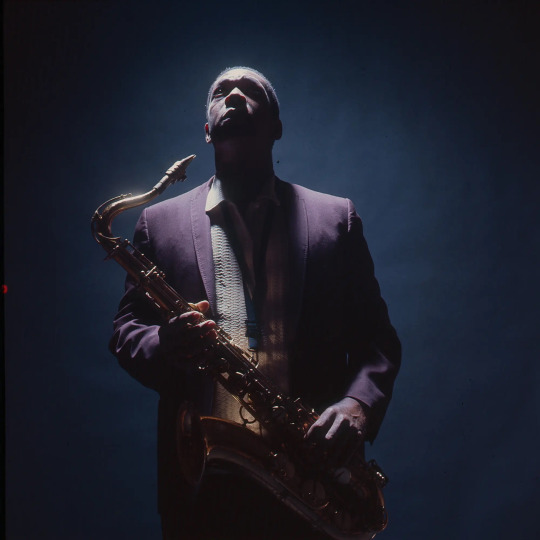
John Coltrane, photographed by Chuck Stewart in New York City, 1966. Credit. © Chuck Stewart Photography, LLC/Fireball Entertainment Group
By M.H. Miller Published Dec. 3, 2021 Updated Dec. 8, 2021
THE SAINT JOHN Coltrane Church in San Francisco — a branch of the African Orthodox Church, where the jazz musician John Coltrane is the canonized patron saint — is a family affair. It was founded in 1969 by His Eminence Archbishop Franzo W. King, D.D., and his wife, the Most Rev. Supreme Mother Marina King, before they possessed such lofty titles. (Their daughter, the Rev. Chaplain Wanika Stephens, Archpriest, M.A., is also a pastor there.) The church began around 1964, as the Jazz Club in the couple’s garage — “a listening clinic,” F.W. King, now 77, says on a recent Zoom call with his wife, 75, from their home in San Francisco’s Bayview-Hunters Point. (Their daughter, 57, also joined.) “Maybe less than a dozen brothers and sisters would come together every week. Everybody would bring a new album. We’d put the music on and start testing our ears and our knowledge,” seeing if they could name the drummer or the piano player on a track without looking at the record sleeve. One day, someone brought Coltrane’s 1965 record “A Love Supreme,” and King looked at the liner notes, which Coltrane wrote himself. “All Praise be to God to whom all praise is due,” Coltrane begins, and then tells a story: “During the year 1957,” he writes, “I experienced, by the grace of God, a spiritual awakening which was to lead me to a richer, fuller, more productive life. At that time, in gratitude, I humbly asked to be given the means and privilege to make others happy through music.” In those years, Coltrane was addicted to heroin and — so the legend goes — while experiencing withdrawals heard the voice of God and got clean, rededicating his life to music.
“I wasn’t really that impressed!” King says. “I didn’t even want to listen to the album.” His own father had been a Pentecostal minister, and King believed back then that he had “successfully escaped from the raft of the church.” This changed a few months later, when he and his wife attended a Coltrane concert at the Jazz Workshop, in San Francisco’s North Beach neighborhood, to celebrate their first wedding anniversary; the doorman was a friend and sat the couple right in front of the stage. “So we were able to get a full dose,” King says. There have been countless attempts to capture the power of Coltrane’s music — his unmatched ear for both melody and chaos, his seemingly endless ability to find new sounds in traditional chords, the complex interplay between him and his band (which, in addition to Coltrane on saxophone, included Jimmy Garrison on bass, Elvin Jones on drums and McCoy Tyner on piano) — but, to King, “It was as though he was speaking in tongues and there was fire coming from heaven — a sound baptism,” he says. “That began the evolutionary, transitional process of us becoming truly born-again believers in that anointed sound that leaped down from the tone of heaven out of the very mind of God, stepped from the very wall of creation and took on a gob of flesh, and we beheld his beauty as one that was called John.”
There is a long and rich tradition of popular music fans deifying their icons. A famous, if dubious, graffiti tag in mid-60s London consecrated the then-lead guitarist for the Yardbirds, proclaiming, “[Eric] Clapton is God.” The mythology surrounding the blues singer and guitarist Robert Johnson claims he sold his soul to the devil sometime in the 1930s in order to gain mastery over his instrument. Google a certain disgraced pop star in 2021 and the algorithm might helpfully suggest the following question: “Was Michael Jackson a gift from God?” Any musician who is heralded as the second coming tends to be brought back down to earth eventually, whether through changing tastes or human foibles (Clapton is now an anti-vaccine proponent), though there was always something different about Coltrane, whose death from cancer in 1967 at age 40 transformed him into a kind of martyr. Through the years, the story of Coltrane’s veneration has been treated by his critics and biographers as a quirky footnote to his afterlife, if not ignored entirely, but it provides a revealing glimpse at his legacy, as well as a key to understanding the intensity of his appeal.
“DO YOU HAVE a religious affiliation at all yourself?” Archbishop King asks me over Zoom. “Lapsed Catholic,” I say, which isn’t inaccurate. I suggest, somewhat humorlessly, that for this reason I consider the liner notes to “A Love Supreme” — Coltrane’s most famous recording, and one of the great achievements in all of music — to be more legitimate than the Lord’s Prayer.
“Check this out, Brother Miller,” King says, and he and his wife begin singing the “Our Father” in exquisite harmony to the tune of “Psalm,” the closing section of “A Love Supreme,” after which — and this isn’t a joke, either — I offer out my hands, clasped as if in prayer, to them in thanks.
“I think most real Coltrane devotees are lapsed religious people in one sense,” the archbishop says. “Religion is so much built on what we believe. And a lot of times what we believe is because we’ve been trained to believe it, keeping in mind that believing falls short of knowing. And if you ask too many questions for the sake of knowledge, you might get excommunicated. So we’re sympathetic with that.”
It was only after King saw Coltrane live again a few months later that he began to think of the club in his garage as more of a temple. The Kings had to travel to a venue in a white neighborhood, where King found that the audience “was not so populated with people who looked like me.” Coltrane himself had been talking about the treatment of musicians in clubs, saying that “the music is rising into something else,” and that it would need a different context. Around this time, King had been learning how to play the saxophone, and was gigging in San Francisco with his teacher, Norman Terrell Williams. The duo began attracting a following, and the venue filled up nightly with patrons. King asked Williams if, as a result, its white owner had given him a raise. “And he said, ‘Nah, man,’” King recalls. “And I said, ‘Something’s wrong with this.’ To me it was just unacceptable.”
Coltrane’s music provided an outlet for such frustrations. Around the same time that he was quoting Jesus in his liner notes, various changes were underway in San Francisco’s Black community. Black churches had been at the center of the civil rights movement for most of the 1960s, preaching a message of pacifism and nonviolence, but in 1966, when Huey P. Newton and Bobby Seale founded the Black Panther Party across the bay in Oakland, the fight for equality became a brash, revolutionary one. Around then, the Kings moved out of the garage and into a storefront in the working-class neighborhood of Visitation Valley, where they became known as the Yardbird Temple Vanguard Revolutionary Church of the Hour. Coltrane — in no small part thanks to the Kings — became the hero of not just the Black Panther Party but the burgeoning Black power movement at large. Newton often spoke of how more traditional churches had failed Black society; Miles Davis, with whom Coltrane had some of his earliest successes as a sideman, writes in his 1989 autobiography that by the time the Black Panthers formed, Coltrane’s music had become “for many blacks, the fire and passion and rage and anger and rebellion and love that they felt.”
The musician was an unexpected choice for a revolutionary lodestar, for his message was ultimately one of peace and harmony. “I think music can make the world better and, if I’m qualified, I want to do it,” he once said. Though that doesn’t mean he was apolitical: One of his finest songs, “Alabama,” was written in 1963, in response to the Ku Klux Klan’s bombing of a Baptist church in Birmingham that year, killing four Black children. It’s one of the great works of art produced by the civil rights movement, and Coltrane’s band never sounded better. Garrison and Jones work themselves into a funereal groove, and Tyner somehow makes his piano sound like it’s crying. Coltrane on the tenor sax is nothing less than the sound of dignity prevailing through overwhelming tragedy.
Though the Black Panthers were, as King notes, atheists, they became some of his church’s most ardent supporters. Out of the storefront in the Western Addition, King was preaching that Coltrane was Christ incarnate, and structuring a weekly meeting around his music, especially “A Love Supreme,” a suite in four parts — “Acknowledgement,” “Resolution,” “Pursuance,” “Psalm” — that has the loose structure of a prayer service. And King, in turn, realized that the Panthers’ Marxist ideology (“Dialectical materialism,” as Marina says with a small sigh) had more in common with the Christian faith than he might have expected.
The Kings’ dogma may have been untraditional, but for the most part they did and still do what most churches do — perform music, meditate, offer prayers, organize food drives. (Colloquially, they are known in the Bay Area as the Beans and Rice Church: “Free vegetarian meals!” Marina says excitedly at one point in our interview.) In 1972, for the Black Panther Community Survival Program at the Oakland Auditorium, the church’s house band opened for Ike and Tina Turner and helped pass out thousands of bags of groceries to families in need. Newton and Seale had promised a whole chicken in each one and told the Kings that they needed $2,000 to “get the chickens out of hostage to give them to the people.” The church raised the funds to do so and, in thanks, Newton commissioned Emory Douglas, the Panthers’ minister of culture, to make a Coltrane painting — it became something like the church’s first icon. The Kings are sitting in front of it when we speak on Zoom.
Of course, the Kings have also been met with skepticism over the years. Alice Coltrane, the artist’s widow (and his piano player in the last years of his career), was a friend of the Kings and a religious leader in her own right. She converted to Hinduism after Coltrane’s death and founded the Vedantic Center near Malibu, and the Kings considered her to be their guru. (They sing in Sanskrit on some of her early devotional music.) But in 1981, she sued the church, then known as the One Mind Temple Evolutionary Transitional Church of Christ, for copyright infringement and for using her late husband’s name without permission. A spokesman for the church at the time asked The New York Times, in its defense, “Did you ever think it was necessary to ask Mother Mary to use Jesus’ name?”
The suit was eventually dropped, but it turned out to be fortuitous; it brought the Kings to the attention of leaders in the African Orthodox Church, which was founded in New York City in the early 20th century by defectors from the Episcopalian faith. George Duncan Hinkson, a bishop in the A.O.C., told the Kings that Coltrane couldn’t be their god, but he could be their patron saint. (When asked what he wanted to be in 10 years in a 1966 interview, Coltrane, whose father and grandfather were Methodist ministers, famously replied, “A saint.”) “So I said,” King tells me, “‘Well, we ain’t got no problem with that,’” and in 1982, the A.O.C. officially canonized Coltrane. The Kings began studying orthodoxy, commissioning icon paintings in the Byzantine style, and changed the congregation’s name to the Saint John Coltrane African Orthodox Church. In the years since, gentrification has forced them to move around San Francisco, holding weekly services (they migrated to Facebook during the pandemic) and preaching what they call “Coltrane Consciousness.” People have made pilgrimages from across the world to attend these services the way other devotees might travel to Rishikesh, India, or Jerusalem.
THAT’S THE STORY of how a postwar 20th-century musician became a saint, but it still leaves the question: Why Coltrane? What is it about him that makes people dedicate their entire lives to his art? So many other musicians have made music with overtly Christian themes and been celebrated for it — Aretha Franklin, Whitney Houston, Bono, Kanye West and Justin Bieber, to name just a few — though many of them (the men, anyway) also seemed to present themselves as self-consciously Christlike in doing so. (West, for instance, preached the dangers of pornography and premarital sex when publicizing his 2019 record “Jesus Is King.”) But what’s always struck me about Coltrane, and “A Love Supreme” in particular, is how welcoming he is in his approach to spirituality, how lacking in judgment. He seemed to know how good he was on a technical level — he certainly thought making people happy with his music was an achievable goal — but he also harbored no delusions of grandeur. Nearly every account that exists of him depicts a quiet and somewhat shy family man. He spent most of his free time practicing. He drove a Chrysler station wagon and lived on Long Island. It’s not that his music filtered out the banality of being human but that he had an uncanny ability to make his human flaws into something useful. The difference between Coltrane the man and Coltrane the performer was a nearly alchemical transfiguration.
It’s no coincidence that, more than any other figure in the history of American music, his admirers tend to experience his work the way others might undergo a religious epiphany. “I thought I was going to die from the emotion,” the musician Joe McPhee once told the critic Ben Ratliff of witnessing a 1965 Coltrane concert at the Village Gate in New York. The record producer George Avakian, as recounted in Davis’s autobiography, once said that Coltrane “seemed to grow taller in height and larger in size with each note that he played,” that he “seemed to be pushing each chord to its outer limits, out into space.” On our Zoom call, Stephens describes a similar experience when “Song of Praise,” a deep cut from the 1965 album “The John Coltrane Quartet Plays,” came on one day when she was vacuuming her living room. As she says, “John Coltrane spoke to me.”
There are enough stories like this to create an entire subgenre, but my personal favorite, and the one that best explains Coltrane’s lasting appeal, comes from the poet and playwright Amiri Baraka’s liner notes for the 1964 album “Live at Birdland,” a concert at the historic club just north of Times Square, sessions for which Baraka, then known as LeRoi Jones, was in attendance. In describing the extreme contrast of Coltrane’s transcendent, highly emotional music — “one of the reasons suicide seems so boring” — and its earthly setting, he writes, “Birdland is a place no man should wander into unarmed.
“After riding a subway through New York’s bowels,” he continues, “and that subway full of all the many things any man should expect to find in something’s bowels, and then coming up stairs to the street and walking slowly, head down, through the traffic and failure that does shape this place, and then entering ‘the Jazz Corner of the World,’ a temple erected in praise of what God (?), and then finally amidst that noise and glare to hear a man destroy all of it, completely, like Sodom, with just the first few notes from his horn, your ‘critical’ sense can be erased completely, and that experience can place you some Baraka admits that there are people who can’t hear what he calls the “daringly human quality” of Coltrane, as if the notes he played were on a wavelength that simply didn’t register for certain nonbelievers. Even the most beloved music, like all art forms, falls in and out of style. But Coltrane’s work has not only endured, it’s become ever more embraced, inspiring greater fervor the further removed we get from its original recording. The only other thing that compares is, curiously, religion itself. If you allow yourself to hear Coltrane — really hear him — his music, like God or Buddha or Dharma or Allah, can, as Baraka describes it, “make you think a lot of weird and wonderful things.”where a long way off from anything ugly.”
#John Coltrane#Jazz#Huey P. Newton#Bobby Seale#Black Panther Party#The New York Times#Tina Turner#Ben Ratliff#Joe McPhee#George Avakian#McCoy Tyner#Elvin Jones#Black Panthers#Jimmy Garrison
14 notes
·
View notes
Text
Spell out your url using song titless tagged by my love @strawberrymilkcult 💕💕💕
S - southside forever freestyle by megan thee stallion
I - i’m like a lawyer with the way i’m always trying to get you off by fall out boy
M - ms. jackson by outkast
O - old friends by simon and garfunkel
N - no one like you by scorpions
A - archie, marry me (cover) by flyte
N - need to know by doja cat
D - d.d. (cover) by the weeknd
G - girl front - loona
A - an open letter to nyc by beastie boys
R - running up that hill by kate bush
F - fall in love with me by iggy pop
U - un-thinkable by alicia keys
N - now or never by meet me @ the altar
K - kokomo, in by japanese breakfast
I - is it a crime by sade
E - enter sandman (cover) by rina sawayama
No pressure tagss mwah!: @monicabelluccigf @yassification @angelnumbers @sadgaysupreme @sunmisbf
8 notes
·
View notes
Video
youtube
d.d. jackson - automatic lover
-ax and TOS
30 notes
·
View notes
Video
youtube
D.D. Jackson Trio Live in Capri, Italy performing Duke's "In a Mellow Tone"
5 notes
·
View notes
Text
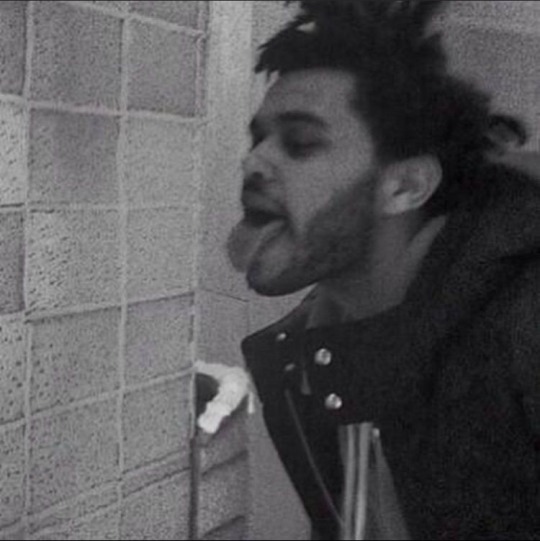
my top 3 tracks from each of Abel’s projects/reasons why I like them:
House of Balloons:
Coming Down is a personal favorite of mine for sure. I never thought I’d relate to a song like I do to Coming Down- that empty feeling you get after everything wears off is the worst. I can’t stand being alone when I feel that way.
House of Balloons / Glass Table Girls is another favorite of mine. The chorus is immaculate, and it resonates with me pretty hard.
Loft Music. I fuck with this song HEAVY. I can’t get over the outro- it plays in my head on a loop, I swear.
Thursday:
Life of the Party. This song makes me feel like the main character, like I’m the center of attention- and I absolutely love that.
The Zone: Drake. Feature. That’s all I have to say.
The Birds, Pt. 1. Again, this song really resonates with me. Before I met my current s/o, I was definitely the player type. I didn’t care if I hurt people, and I know I definitely did. I fuck with The Birds because I can relate to it.
Echoes of Silence
D.D. I’m a huge fan of Michael Jackson as well, and when I first heard this song, I’m pretty sure I actually transcended. It’s a religious experience for me.
Same Old Song: I first heard this song when I was 15 (side note, I’m 19 now) and I fell in love. The opening line alone makes my heart throb. What a song.
Initiation. This track is so dark- and that’s what I love about Abel. He portrays this lifestyle and this life so well that it’s almost terrifying. His storytelling on all three mixtapes made me fall in love with his styling.
Kiss Land
Live For is an iconic song, in my opinion. Again, I love Drake as well, and this song is just so good.
Kiss Land. I love that it’s the titular track- this song deserves it for sure. It makes me feel all of the emotions.
Tears in the Rain- “I should've let you leave / But I let you watch me slip away” This line shatters my heart every single time. This song is so heartfelt and emotional and I can really connect and relate to it.
Beauty Behind The Madness
Dark Times- I can really relate to this song. I used to get into quite a few altercations while under the influence, and I had basically convinced myself I was unlovable because of this.
Angel. The first time I heard this song, I cried like a baby. Abel is so real and his lyrics are so meaningful, especially on this track.
Shameless: I was in a very toxic relationship for a long time, and this song captured my feelings perfectly. Glad to say I’ve moved on from that toxicity.
Starboy
Attention is by far my favorite on Starboy. The beat, the lyrics, all of it. It’s on all of my sex playlists, and I recommend putting it on yours.
Secrets- oh man, this song right here. It reminds me of a lot of things, and is superrrr relatable. This song is criminally underrated, imo.
True Colors is SUCH A GOOD TRACK! I love love love this song, it reminds me of when I first started talking to my current significant other and we were just trying to figure each other out. Also very underrated.
My Dear Melancholy,
Literally all of them. I can’t pick any favorites here because they’re all amazing. I like his slower and darker stuff a lot, so many feelings packed into these tracks.
After Hours (Deluxe Version)
FAITH!!!! By far my favorite song off After Hours. The lyrics convey a very strong message, and I love the line “when I’m coming down is the most I feel alone” because... yeah.
Repeat After Me (Interlude). If you’ve ever had an ex hit your line while they were dating someone new, you know why I like this one.
Scared To Live- “And if I held you back, at least I held you close.” This song is very reflective in the way that it causes me to look back on all of the mistakes I made and people I hurt. I love songs that can make me do this.
Overall, I love all of Abel’s projects, but if I had to pick a favorite, it’s definitely Echoes of Silence. Follow me if you like The Weeknd (I might start annotating some of his songs with what they mean to me), hockey (I’m a big Chicago fan but I also love the Maple Leafs and the Flyers), and interior design- specifically bathrooms and living rooms. I mostly made this account to shout my opinions into the void. I’m not here for popularity or followers, but I’d love to hear your opinions and maybe make some friends:)
#theweeknd#weeknd xo#beauty behind the madness#trilogy#house of balloons#kiss land#after hours#abel tesfaye#xo#Spotify
3 notes
·
View notes
Link
0 notes
Text

The 50X50’s Playlist: Week 10
Covers. Covers. Covers. This week our heroes rock some of their favorite covers. As always, if you dig it please share.
Spotify
Apple Music
1. Kid Koala “Basin Street Blues”
2. Elliott Smith “Because”
3. George Benson “California Dreamin’”
4. Deto 22 & Sketch tha cataclysm “Things That Start With H”
5. Ceschi “Britney”
6. Mark Ronson feat Phantom Planet “Just”
7. System of a Down “The Metro”
8. The Weeknd “D.D.”
9. Jackson 5 “Ain’t No Sunshine”
10. Frank Ocean “Moon River”
11. Denzel Curry “Bulls on Parade”
12. Les Mcann “What’s Going on”
13. Black Star “Children’s Story”
14. The White Stripes “St James Infirmary Blues”
15. Santana “Para Los Rumberos”
16. Deto 22 & Sketch tha cataclysm “Rebel Music”
17. Easy Star Allstars “Us and Them”
18. Van Halen “Ice Cream Man”
19. Jeff Buckley “Kashmir”
1 note
·
View note
Text
Captivated By You (D.D. Imagine)
Summary: You are at party when David feel the overwhelming need to meet you.
Imagine heavily influenced by the song Calypso by Jackson Lundy if y’all wanna go give that a listen :)
Notes: Hi everyone! Hope y’all like this meet-cute type of imagine. Let me know if you guys have any specific requests for imagines or series in mind! -Julie
Word Count: 743
Tonight was one of the few nights you had free. You’ve been so busy with work that you had so little time for much else. So, when the opportunity arose to have a free night, you decided to take advantage of it full force. You called a few of your closest girlfriends and begged them to all go out with you.
Come on guys! It’ll be fun, we’ll have a few drinks, get our dance on, and just let loose.
After some coaxing you were able to convince them to go to a party that some friend told you about. They all come over to your place a little early so you all could get ready and leave together. You all make it to the party at full swing. The music is loud, people are smooshed near each other trying to dance, and alcohol is flowing through the place. You and your girls manage to get to the kitchen to start drinking. Once you all were sufficiently buzzed is when you went out onto the open space where everyone is dancing.
You were sufficiently buzzed that when everyone started dancing you couldn’t help but close your eyes and dance to the beat. You did this for many songs. Eyes closed and dancing to the feel of the music, not paying attention to anyone else. You could feel the music surrounding yourself, and your dancing began to feel like an out of body experience. The music going in one ear out the other. Your moving body starts to feel like it is melding with the music. The bodies surrounding you, also dancing, begins to feel like a part of yourself.
You were completely in the zone when this bright flash passes over you with the simultaneous annoying yells from multiple people trying to do something crazy. You abruptly opened your eyes, barely able to see the people in front of you while your eyes adjusted from being closed for so long. When your eyes finally adjusted, the first thing you saw was a boy in all black on top of a chair with a bright flash from his phone and a camera recording the situation in front of him. The boys camera is facing the scenario in front of him but his attention is on you. You then switch your focus onto the situation in front of you. Your friends are all entangled with these boys. Some sort of hardcore dance and grind dance thing wass happening. All the boys seem to be yelling encouraging your friends to be more ‘slutty’ for a lack of a better term. All the while the boy in black is recording it.
This whole situation seemed incredibly odd and not your style so you walked back over to the kitchen to get some water.
As you was grabbing a water bottle from the cooler on the floor, you felt a light lap on your shoulder. You looked up to a pair of beautiful brown eyes. Then you took a step back so you weren’t so close to this stranger and then realized it was the boy in black recording the situation you just left.
Hi? You said confused as to why this boy you didn’t know tapped you and has yet to say anything.
Hi. Is all he said as he continued to stare at you.
You shifted uncomfortably. Um. How may I help you? You asked not knowing what to do.
He shook his head as if he were getting out of a trance and said. Hi. Sorry. I’m David. He pushed his hand out of his pocket to offer a handshake.
You ignored it. Cool. But did you need something David? Was there a reason you tapped my shoulder?
He smiled slightly. Well honestly, I tapped you on the shoulder because I saw you dancing earlier and had to introduce myself. When I saw you all I thought was that I’d really love to know your name and just sit and talk to you for hours. So here I am being incredibly forward because of how captivated I was by you. He stood there. Staring at you intently waiting for a response.
You couldn’t help but smile. Instead of saying anything, you grabbed him by the wrist and pulled him onto the dance floor. You started dancing with him when you pulled him towards you and whispered over the music just name a time and place.
#david dobrik#david dobrik fanfiction#david dobrik imagine#david dobrik x reader#david dobrik fluff#david dobrik fic#david dobrik x you#vlog squad fic
131 notes
·
View notes
Text
Oh boy - d.d x y.n
David was chasing Amelia, Jackson, and Ethan around the back yard trying to catch them to tickle them. Y/n was doing laundry when she was suddenly hit by a bout of nausea .Clasping her hand to her mouth she ran to the bathroom where she proceeded to rid her stomach of her breakfast. Finally stopping, she rested her forehead against the porcelain wondering where this sickness came from.
After a few moments of rest , she finally felt as if she could get up. Leaving the bathroom she went about straightening up the house from the kid’s breakfast and shenanigans. She felt better as the day went on and went to bed thinking it was just a small oddity.
The next morning she woke up from a deep sleep nauseous running to the bathroom. After empyting the contents of her stomach she got to thinking and called David to the bathroom. “ I need you to go to the store and get a pregnancy test.”
He was shocked at her words but nodded “I’ll be back and I’ll take the kids with me.” By the time he left she was throwing up again and couldn’t move from her spot. He arrived back to the house with test in hand and ginger ale in the other hand. He gave her the test and took the kids outside while she took it.
She took the test and waited five minutes before looking at the results.
Positive.
Walking out to the patio door she motioned for David to come in. He ran up to her and she placed the test in his hand.
“You’re getting a vasectomy and that’s final. “
#david dobrik#david dobrik x y/n#david dobrik x you#david dobrik x reader#david dobrik x reader imagine#david dobrik x reader fanfiction#david x reader#david x y/n#david x you#david dobrik imagine#david dobrik fanfiction
92 notes
·
View notes
Text
Series Review: Girl, Vampire by Graceley Knox and D.D. Miers
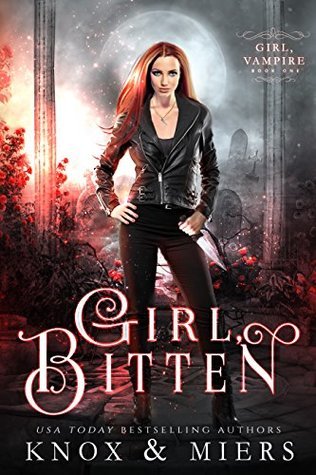
Rating: 4.5/5
Note; picture is only for the first book in the series, but this review covers all 3 books Secondary note; I have done my best to withhold all spoilers.
Review below the cut for post brevity
Fun note about me before we get into things, I usually don’t read on weekends. I work open to close every Saturday and Sunday and normally, by the time I get home I’m just tired, hungry, and all I want to do is go lay in bed and zone out to some youtube for a while--especially during the holiday season when my introversion is already being pushed to its limits and my brain is completely and utterly fried.
I say this because I managed to read both Girl, Forsaken and Girl, Immortal this weekend and that honestly says something about these books and this series as a whole. I really didn’t want to read this weekend. The Girl, Vampire series outweighed my desire to have a well-rested brain, and it was worth it. So, now onto the actual review proper.
The Girl, Vampire series is about Sasha, a grad student studying blood types who ends up as dinner for an infected vampire who needs a cure to a disease plaguing covens across the world. She’s torn between Nikolai, the handsome but controlling vampire who turned her, and Arsen, the other handsome vampire of a rival faction who is manipulative but oh so irresistible. I’m leaving it at that, because spoilers will ensure otherwise.
Throughout the series, Sasha vies for peace and humanity between the warring factions and let me tell you, she is WONDERFUL. She kicks ass not only in the brawn department through her vampiric nature, but also through cold, clean science. Before everything else, Sasha is a scientist. She studies diseases and she feels at home hanging out in a lab, running blood samples through centrifuges and looking at slides under expensive microscopes.
As a former nurse, I cannot tell you how much I appreciated the authors’ attention to what’s going on with the vampire community on an infectious-diseases level. Knox and Miers did a fantastic job with being specific yet not being too extra when it comes to tackling the vampire epidemic as it unfolds. They aren’t afraid to mention specific tests that are run, to compare parasites and viruses, or to have off-handed mentions about how blood is stored for tests to keep it viable. They did their research on that front and I absolutely love that. I was also very excited at how Sasha is respected as a scientist. No one’s scoffing at her intellect or questioning science in the face of the supernatural. It’s refreshing.
Another thing that I am so here for was how they handled the love triangle plot. Trust me, y’all, I am the first person to start gagging when I see a cliche love triangle developing in a series, but this is notably un-gag-able. Or... the opposite of gagging. Anyway. The romance genre is absolutely rife with books that have two perfect male characters and a smitten female who just can’t choose between the two hotties, right? And let me tell y’all... that is not this series.
In Girl, Vampire, there’s no easy choice between who Sasha should end up with. Both male characters start out as assholes, being honest. At the end of the first book, I honestly wanted to write a fan fiction ending where Sasha completely leaves Portland and starts her own coven, just because of how much I genuinely disliked Nikolai and Arsen. At the same time, it was really what compelled me to keep reading. I had to know what happened. I had to know who was able to redeem himself and who wasn’t. I haven’t seen a lot of healthy male redemption arcs in books and I am so, so here for the one in this series.
I also loved how this series develops as a whole. I’m gonna be up front: Girl, Bitten has a kind of rough start. Things aren’t explained in this polished, obvious way and some of the chapter transitions are kind of disjointed and you may start this book and think ‘uhn-uh, not for me, I’m gonna read something else.’ Even the authors’ note at the end of the book acknowledges that this was the hardest book they’ve written together. But listen here: don’t give up on this one. Keep reading. By the end of the first book, all the wrinkles work out and the series becomes absolutely amazing. The next two books are even better. The pacing is on point, the plot is unexpected but interesting, and there’s so much going on that even if you aren’t there for romance you’ll still appreciate this series. And if you are there for romance but less so for plot, there’s enough to keep you interested, too. Everything is perfectly balanced, like a good steak and a fine wine. For me, I appreciated seeing the series climb that learning curve. Each book is better than the last.
I know this review is getting long, but bear with me for one more thing. I can’t talk about this series without mentioning the witty dialogue. There are so many great lines within this series and honestly, if you’re not reading these books - or these authors - you’re missing out. My absolute favorite was Jackson saying “all vampires are the French bourgeoisie,” in Girl, Immortal, which I unapologetically want to get put on a tote bag for everyday use. There are other great, sassy comments as well, but I will leave it to you to read these books and find all the gems for yourselves. They’re definitely worth reading.
So all in all (if you’re looking for a tl;dr it’s here, by the way) the Girl, Vampire series is a refreshing romance that switches up all the cliches and leaves you wanting more. It’s funny, it’s captivating, it has a surprising amount of science, it’s got just the right amount of drama, and it’s highly worth checking out.
#bifrostbookreviews#book review#series review#booklr#bookblr#graceley knox#dd miers#d.d. miers#girl vampire#girl bitten#girl immortal#girl forsaken#paranormal romance#vampire#gothic#goth
1 note
·
View note
Note
I don’t know if I’ve misread posts on here or not, but when everyone was discussing what type of contracts solo 1D would sign people were saying a distribution deal was the best and that it was good that Louis had a D.D because he would have more (that’s the keyword) creative control. Is it possible for Louis’ situation to be like Ciara’s, Sky Ferriera, when he has a D.D (w/ the theory that Syco doesn’t like his music)? Or are there examples of artists like him with a D.D I haven’t seen
P.S - I haven’t checked if Ciara or Sky Ferriera signed D.D so if they have, I guess I just answered my own ask, sorry
this answer is going to be incredibly long and rambly but the TL;DR is:
1. we don’t actually know what any of their contracts or deals look like and what they entail.
2. ‘distribution deals’ are not the saviors of artists and are actually just a step up from 360 deals.
let me start off by saying the stuff i know has come exclusively from researching and reading books about the industry and reading what multiple artists have to say. i don’t work in music. i’m not a lawyer. (i do work in entertainment and while i do think some knowledge is transferable i cannot claim that it is exact.)
i think if you want to understand the types of record deals you should read this article by david byrne of the talking heads, (he actually wrote a book about the industry but i haven’t gotten my hands on it yet). this is how he describes a DD:
2. Next is what I’ll call the standard distribution deal. This is more or less what I lived with for many years as a member of the Talking Heads. The record company bankrolls the recording and handles the manufacturing, distribution, press, and promotion. The artist gets a royalty percentage after all those other costs are repaid. The label, in this scenario, owns the copyright to the recording. Forever.
There’s another catch with this kind of arrangement: The typical pop star often lives in debt to their record company and a host of other entities, and if they hit a dry spell they can go broke. Michael Jackson, MC Hammer, TLC — the danger of debt and overextension is an old story.
Obviously, the cost of these services, along with the record company’s overhead, accounts for a big part of CD prices. You, the buyer, are paying for all those trucks, those CD plants, those warehouses, and all that plastic. Theoretically, as many of these costs go away, they should no longer be charged to the consumer — or the artist.
Sure, many of the services traditionally provided by record labels under the standard deal are now being farmed out. Press and publicity, digital marketing, graphic design — all are often handled by smaller, independent firms. But he who pays the piper calls the tune. If the record company pays the subcontractors, then the record company ultimately decides who or what has priority. If they “don’t hear a single,” they can tell you your record isn’t coming out.
i also just finished reading moses avalon’s book which talks about various contracts and deals, and he highlights how indie labels can sign distribution deals with majors, or vanity labels with majors which is what SZA and her indie label top dawg did with RCA. jimmy iovine discussed this on beats 1, just how much $ sza and her indie label will keep, but there’s not much talk about control. other people were concerned about her involvement with RCA even though she’s still signed to top dawg. from transcending sound:
An indie label will sign a distribution deal for some of the reasons why an artist may sign to a major label: because of the money, influence, and experience that the distribution label has in releasing something on a bigger level compared to the indie label.
Of course, there are positives and negatives to signing a deal like this, such as the ones discussed in the article I mentioned earlier. In the case of SZA, there are more positives than negatives. TDE has done a lot in building her career thus far. However, with her growing (and demanding) fanbase as well as her sound (which can be very different from her TDE label mates), a label like RCA could do wonders in helping her, in conjunction with TDE, become an even bigger and more well-known artist than she already is. Also, TDE sells the physical copies of their artist’s albums – other than the ones distributed via major labels – via their website, which doesn’t do as many numbers compared to the streaming and digital downloads. The backing of RCA would do a lot for her in physical sales and in the mass marketing of the album. Plus, RCA Records is owned by Sony, one of the three major labels, which means they have the manpower and influence to do big things.
But, we also can’t forget about the negatives. The major negative that I have, other than ownership of the artist’s work, is the relationship that an artist has with their label. With the alleged issues that Tinashe has or had with RCA in terms of her music being released, a lack of attention, and control (or ctrl) – which people occasionally mention in reference to SZA’s relationship with TDE – is something that is a cause for concern. This may not be an issue because of the entities involved in the deal, but it’s something that will sit in the back of my mind.
We don’t know what the details are of SZA’s deal. I’m also concerned that there will be a change in direction of her sound and her look. But with the things that she and TDE have done, the deal should enhance all of what they have done in the past.
so far it seems like RCA did well by sza, but as the article above discusses and what jimmy iovine said, she’s in a very unique position. her indie label top dawg has been working on building her up and has been able to negotiate a very beneficial deal. meanwhile, the labels that each 1d man has signed with their respective majors are not actual functioning labels. which suggests that in fact the major they are each signed to is doing all of the work, and does have a lot of say– they just don’t have the copyright to any of their respective music.
billboard had this to say about the new frontier of deals, and with regard to sza’s situation specifically:
Terms range from now-standard 360 contracts and joint ventures to new types of licensing arrangements. Capitol Music Group this week is relaunching hip-hop’s storied Priority Records as a way to bring on acts more quickly using wide-ranging deal options and services, from promotion to marketing. Warner Music Group (WMG) launched U.K. imprint Artists to Watch in March to snag streaming-first hits earlier, after rebooting Giant Records as a singles label in Spotify’s home country, Sweden. Licensing deals, which give artists or their indie labels copyright ownership and at least half of the streaming royalties, are also surging with younger acts: RCA is pushing R&B singer-songwriter SZA’s album Ctrl after temporarily licensing it from TDE in a deal that TDE co-president Terrence “Punch” Henderson called “unheard of.”
to add more confusion, this excerpt suggests she has a licensing deal and not a dd, but we can’t know exactly which it is, can we? and her itunes music profile looks the same as the 1D mens (-zayn) so does that mean they’re also just licensing their music and not having a dd with their majors? i would say no, since this deal is called “unheard of” but you can understand how murky this is right? even when the details of a deal have been discussed a lot we still don’t actually know what’s at stake. all we know is that niall, louis, liam and harry have ‘licensed’ their music to their major label. and that’s barely one piece of the puzzle. the rest has to be deducted from everything around them.
because the uk has public filings for companies we can take a look at the way each of the boys’ “home” labels’ finances look like – 78 productions hasn’t filed anything for 2017 yet so we can’t look at that. but we can compare liam and harry’s filings. on the surface they have the same deal, albeit with different majors. both of their output is under “exclusive license” to their to their major labels. and yet their filings are incredibly different. just take a look at what hampton records (liam’s company) has reported and what erskine records (harry’s company) has reported for 2017. there’s a stark difference there, even though on paper the have they “same” deal. does that make sense?
i don’t know if this was helpful at all to you or if it just confused you more. but basically i think it’s important to remember that DDs are not somehow liberating them. i do believe louis has some form of creative control, but that doesn’t mean his output can’t be rejected. i don’t think he can be “forced” to record something syco wants but they can keep rejecting what he does record and leave him in limbo for however long they wish.
i still, somehow, have hope that whatever his new management is they’ll be able to give syco/epic a kick and make louis a bigger priority so he can get a chance.
#okay i hope this is... clear enough... and helpful#and i almost said louis would get a fair chance but LBR that ship has sailed#music industry#contracts#i need to sort out my tags....#just because i post a lot of fucked up stuff about artists btw#doesn't mean i think each situation applies to louis#i've just become very interested in this#and so few people care#about artists being fucked over#acknowledging them on my little corner of the internet is literally the least i can do#Anonymous#music industry: contracts
43 notes
·
View notes